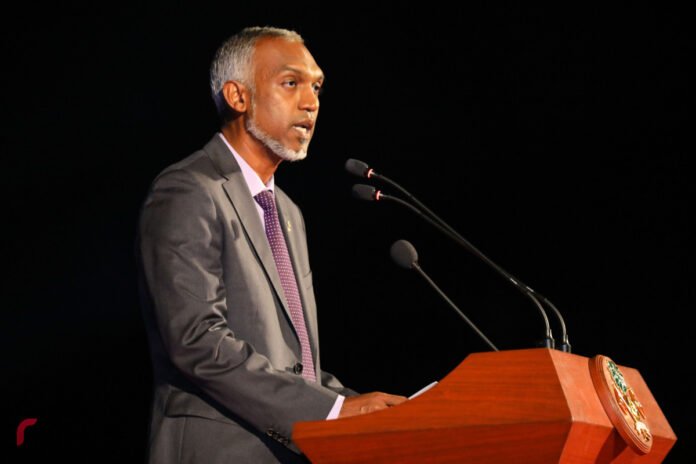The deepening political crisis in the Maldives, the opposition party has announced its intention to move an impeachment motion against President Muizzu. This move comes amid mounting tensions and growing discontent over allegations of corruption, authoritarianism, and abuse of power by the president’s administration. As the Maldives grapples with internal strife and external pressures, the prospect of impeachment raises questions about the country’s democratic institutions and the future of its governance.
The Maldives, an archipelago nation in the Indian Ocean, has been beset by political turmoil in recent years, marked by power struggles, judicial controversies, and allegations of electoral fraud. President Muizzu’s administration has faced criticism from opposition parties, civil society groups, and international observers over perceived violations of democratic norms and human rights abuses. Tensions have escalated as dissenting voices within the country have grown louder, calling for accountability and transparency in governance.
At the heart of the impeachment motion against President Muizzu are accusations of corruption and abuse of power within his administration. Opposition leaders allege that the president and his allies have engaged in embezzlement, nepotism, and cronyism, enriching themselves at the expense of the Maldivian people. Furthermore, there are allegations of political repression, including the arbitrary detention of opposition figures and suppression of dissenting voices.
The move to impeach President Muizzu reflects the opposition’s recourse to constitutional mechanisms for holding the executive accountable. Under the Maldivian constitution, the president can be impeached for “gross misconduct” or violation of the constitution, subject to a vote by the People’s Majlis, the country’s unicameral parliament. The impeachment process involves the submission of a motion by at least one-third of the members of the People’s Majlis, followed by an investigation and a vote requiring a two-thirds majority to pass.
As the opposition party mobilizes support for the impeachment motion, political maneuvering and coalition dynamics are coming into play. With the People’s Majlis divided along party lines, securing the necessary votes for impeachment poses a significant challenge. Opposition leaders are reaching out to independent lawmakers and disaffected members of the ruling coalition in a bid to garner support for the motion. However, the outcome remains uncertain, as defections and alliances may shift in the lead-up to the impeachment vote.
The political crisis in the Maldives has broader implications for regional stability and international relations. The country’s strategic location in the Indian Ocean and its role as a tourist destination and maritime hub make it a focal point of geopolitical competition. Regional powers, including India and China, as well as international organizations such as the United Nations and the Commonwealth, are closely monitoring the situation and urging all parties to uphold democratic principles and the rule of law.
The ongoing political uncertainty and the prospect of impeachment have cast a shadow over governance and economic stability in the Maldives. The country’s tourism-dependent economy has been severely impacted by the COVID-19 pandemic, exacerbating existing socio-economic challenges. The political crisis further undermines investor confidence and hampers efforts to revitalize the economy, posing risks to livelihoods and long-term development prospects.
Against the backdrop of heightened political tensions, there are calls for dialogue and reconciliation to defuse the crisis and pave the way for a peaceful resolution. Civil society groups, religious leaders, and diplomatic envoys have urged all parties to engage in constructive dialogue and find common ground to address the country’s governance challenges. A transparent and inclusive impeachment process, guided by democratic principles and the rule of law, is essential to uphold the Maldives’ democratic credentials and ensure a peaceful transition of power, if necessary.
In a nutshell, the opposition party’s move to impeach President Muizzu represents a critical juncture in the Maldives’ democratic journey, with far-reaching implications for the country’s governance, stability, and international standing. As the impeachment process unfolds, the Maldivian people, political leaders, and the international community must remain vigilant and committed to upholding democratic values and institutions. Only through dialogue, transparency, and respect for the rule of law can the Maldives navigate its current challenges and chart a course towards a more inclusive, democratic, and prosperous future.

